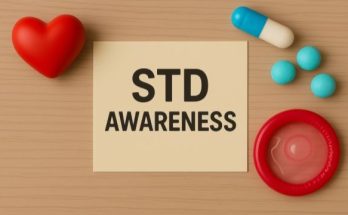Relationships aren’t always easy, but they should make you feel supported, respected, and safe. When patterns of control, manipulation, or emotional harm begin to appear, they can slowly chip away at your well-being, often before you even realize what’s happening. Identifying these warning signs early is crucial for protecting your mental and emotional health. Here are seven red flags that may signal a toxic relationship.
1. Love Bombing
Love bombing often appears in people with narcissistic or borderline personality traits. It usually starts with overwhelming affection, attention, and praise that can feel exciting and flattering. But soon, the shift happens: the same person who made you feel incredible may begin ignoring, criticizing, or blaming you.
As you wait for the warmth to return, the “love bomber” often suggests that their behavior change is somehow your fault. You’re told you did something to “ruin” the connection, and that it’s on you to win their affection back.
2. Constant Stress
All relationships experience conflict, but feeling constant stress is a sign that something deeper is wrong. Toxic dynamics are marked by unpredictability, extreme highs and lows, jealousy, and a lack of accountability, leaving one partner constantly on the defensive. Interactions may leave you feeling embarrassed, ashamed, or emotionally drained.
Attempts to resolve issues often escalate into personal attacks or harsh criticism. You may even find yourself hiding certain behaviors or details of the relationship from others because you fear they won’t understand or will judge. If you’re covering things up or justifying behavior you know is wrong, that’s a red flag. Walking on eggshells or being pulled into constant drama is a sign that the relationship is becoming unhealthy.
3. Gaslighting
Gaslighting is a long-term form of manipulation that causes you to question your thoughts, memories, and perception of reality. Over time, this can lead to self-doubt, anxiety, confusion, and loss of confidence. Gaslighting can happen in any type of relationship, romantic, familial, or platonic, and is one of the clearest indicators of manipulative behavior.
4. Lying
Frequent lying, especially early in a relationship, is often a sign of deeper issues. Dishonesty can point to infidelity, addiction, or hidden financial behavior. For example, someone might claim they’re broke while secretly spending money elsewhere. On the flip side, if you feel unable to be honest with your partner because you fear their reaction, that’s also a sign the dynamic is unhealthy.
5. Being Dismissive
Healthy partners respect and care about each other’s needs and interests. Dismissive behavior goes beyond forgetting a commitment; it’s a pattern of intentionally disregarding your feelings, goals, or activities. This kind of rejection can leave you feeling unimportant or invisible. Dismissiveness often appears alongside narcissistic tendencies.
6. Attempts to Isolate You
If you notice you’re drifting away from friends or family because your partner discourages those connections, this is a serious warning sign. They might say things like, “I don’t like that friend,” or “Your family doesn’t treat you right,” slowly creating a case against the people in your life. Isolation often starts subtly but can escalate into controlling behavior, and in some cases, emotional or psychological abuse.
7. Defensiveness
If you gently raise concerns and your partner responds with defensiveness, denial, or anger instead of willingness to reflect, consider it a red flag. While a therapist can help partners address unhealthy patterns, change only happens when someone is motivated to do so. If they refuse to acknowledge harmful behavior, they are unlikely to change.
Toxic relationships drain your energy and self-esteem, leaving you feeling anxious, insecure, or disconnected from yourself. Recognizing these patterns early is the first step toward protecting your emotional well-being and reclaiming your sense of safety and self-worth.




